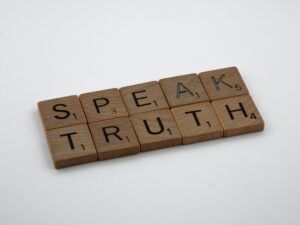“Why am I always so tired?” If you’ve asked yourself this question, you’re not alone. Most people I know are perpetually exhausted! And the reason why isn’t what you might think: while sometimes we genuinely need to sleep more or explore a chronic health condition, very often what makes us tired is a lack of discernment about the cost of things in our lives.
If we want to truly live well, we have to pay attention to the expenses and income of our lives, not just our bank accounts. When we ask how much something costs, most of us are referring to a thing’s monetary value. How much money will we have to give up in order to own (or lease) the thing?
But most of us get money to buy things by giving up something of ourselves: our time, our expertise, our physical labour.
Giving up these elements of our life can make us really tired.
Sometimes we’re lucky and get things for “free”: which really just means that someone else paid for it with their own time, expertise, or labour.
In today’s world we value most things by putting a price tag on them: we label them by their monetary cost. But what if things were labelled differently? “This shirt cost someone 3 hours of their life to sew, someone else 10 hours of their life to transport, and another person 5 hours of their life to package and sell.”
Would we value things differently if they were labelled according to the human cost?
Would we value other people differently if we paid attention to the cost they paid to get us what we want?
Would we begin to value our own lives differently if we started thinking about the human cost of our choices?
This quote from Henry David Thoreau really gets to the heart of the matter:
“The cost of a thing is the amount of what I call life which is required to be exchanged for it, immediately or in the long run.” (Source: Julia Cameron, The Artist’s Way)
Knowing that some things in life will cost us unavoidably, (food, clothing, shelter), are we happy with the amount of life we are sacrificing for non-essentials?
Have we taken time to discern just how much different elements of our life are costing us? Do we have clarity about what does and doesn’t exhaust us, and whether or not they’re worth it?
Are you happy with the amount of life sacrificed to keep up with a large home?
Are you happy with the amount of life sacrificed to obtain and keep up with a large closet full of clothes?
Are you happy with the amount of life sacrificed to buy and prepare the food you have?
Have you actually paused to discern any of it? Or are you just operating on auto-pilot, trundling along with the status quo of your cultural surroundings?
Maybe you love having a large home. Maybe the trade-off of cleaning, maintenance, and organization is totally worth it for your large family or many guests. Maybe you happily pay the cost. Maybe it doesn’t even feel like a big cost to you because you enjoy housework as a service to the people who are welcomed into your home.
Or maybe you realize that you could very happily live with half the space, half the stuff, half the stress, because you’d rather be out of the house volunteering in the community or travelling the world.
Maybe you love having a big closet full of clothes, scoring unique finds at thrift shops and playing with fabric textures and colours as an art form. Maybe you happily hand-wash the 30 year old silk blouse you found and dream of the woman who first owned it, what her life might have been like.
Or maybe you realize that the expense of dry cleaning and the hours of laundry that a large closet demands aren’t worth it for you: you basically wear the same thing every day, and you’re happy. The mental cost of outfit decision making isn’t one that you like. For you, downsizing is the right choice.
Maybe you love cooking, experimenting with new recipes, and inventing your own. Maybe food shopping and meal planning is an activity you enjoy, a chance for creativity and frugality all at once. Maybe you love seeing your family and friends consume a meal that you’ve taken hours to plan and execute.
Or, maybe for you, food is fuel and not art. You just want people to eat healthily and simply. Time in the kitchen comes at a high life-cost for you, and so you purchase a meal planning and shopping subscription. The monetary cost of having someone else do the dreaded chore is well worth the savings in life-cost to you.
Everyone is different: price-tags with monetary cost can’t account for that diversity.
For the woman who loves hosting, a large house is not an extravagance: it’s serving her desire to host others. For the woman who loves art, a widely-varied closet is a palette for creativity and not the useless burden it is for the woman who’s happy wearing a simple daily uniform. If you loathe meal planning, a food prep subscription plan is a well-thought-out-choice to spend life on other things, rather than an unnecessary expense.
If we began to discern all of our activities in terms of their real life cost, and not just monetary cost, what would change?
Would it change what we value?
Would we stop doing some things and start doing others?
Would we stop being so tired all the time?
I think so.
In this series, I’ll offer some practical tips to start thinking about how to measure the life-cost of anything, so you can begin to discern what you actually value in life, and start living accordingly.






